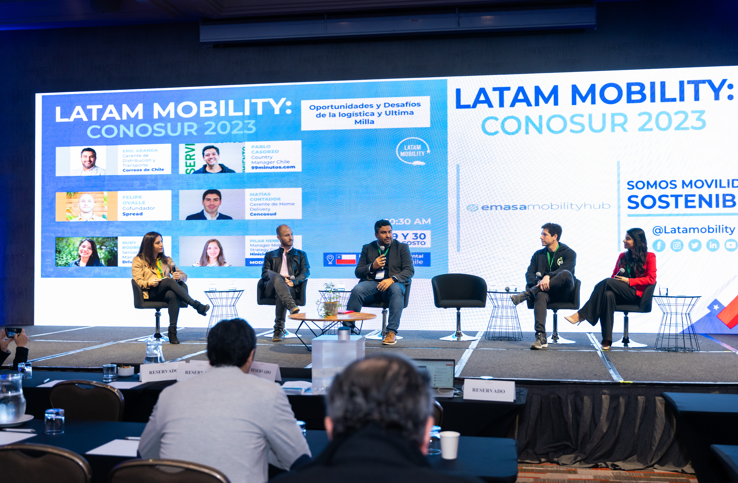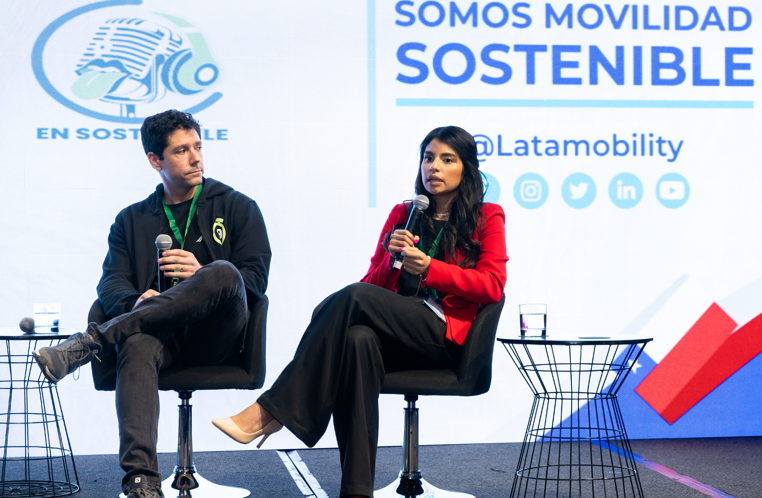
Correos de Chile, Drivin, Spread and 99minutos.com Analyze Last Mile Logistics Opportunities and Challenges

E-commerce and parcel companies experienced significant growth in their operations during the COVID-19 pandemic. While it is true that it was a positive aspect for this market, there are still many challenges to be faced.
In this sense, the “Latam Mobility: ConoSur 2023”, discussed “Opportunities and Challenges of Logistics and Last Mile”, a panel that brought together leading representatives of the public sector in Chile and the region.
Eric Aranda, Distribution and Transport Manager of Correos de Chile, pointed out that in addition to being a company with a great tradition, they are constantly evolving.
“Logistics represents a great challenge. Since 2017 we acquired electric vehicles focused on micromobility. 80% of our fleet is electrified and we aim for 100% by 2030,” he said.
Read also: Andes Motor and Divemotor Sign Partnership with CATL
He pointed out that one of the great challenges is to reduce transfer times to decarbonize the transportation sector. “We are approaching in a consolidated way the load, in terms of kilometers there is a drop, but we do need technology to continue optimizing that.”
“We need solutions to deliver complete information to the customer and for that we are working on integration,” concluded Aranda.
99minutos.com and Value Chain
Pablo Casorzo, Country Manager for Chile at 99minutos.com, explained the importance of the entire value chain for last mile logistics.
“We participate with 20% of electrified or low consumption fleet, seeking to reduce kilometers and generate alliances for distribution. These aspects are essential to decongest and decontaminate, so we have developed partnerships and complementary companies to reach all of Chile efficiently,” he explained.
“There are still high costs, low frequency and high contamination. The alliances are going to make it possible for us to mobilize in an intelligent and complementary way to make a big difference in order to do our bit,” Casorzo added.
He assured that customers prefer sustainability, but the challenge is whether they are willing to pay for it to make delivery a clean process. “There is a very strong challenge in the industry, which is to look for technology to be more efficient, to optimize trips with joint distribution.”

Efficiency in Spread’s Movements
Felipe Ovalle, Co-Founder of Spread also emphasized the importance of looking at electromobility as an ecosystem and not just vehicles and chargers.
“Many aspects have to be taken into account; the issue of kilometers traveled, how we arm logistics and have sustainability with a focus on last mile deliveries,” he said.
He explained that it is very common for parcel companies to have a warehouse where they go all over the city, with distances traveled unnecessarily.
“We look for idle urban spaces, we carry consolidated cargo and we go out with low consumption, low cost and low carbon emission vehicles also avoiding physical pollution,” Ovalle pointed out.
He stressed that in the last-mile market, price is a very exclusionary factor, which forces us to be very efficient in order to improve operating costs and offer affordable rates to users.
Drivin’s Technology
Nury Rodriguez, Senior Sales Manager at Drivin, highlighted the great transportation management system that helps companies plan and be more efficient in their delivery process.
“Smart mobility is in our DNA for development,” she said. “We work in Colombia with Grupo Bimbo optimizing logistics processes, efficient that will impact on the reduction of the carbon footprint,” she explained as a Drivin success story.
She assured that the most important challenge is to be able to “technologize” and digitalize processes, to work on a platform so that cost management, returnable assets, everything with logistics is integrated into a single system of solutions.
“With Nestlé we are in 14 countries, achieving a cost reduction between 12 and 30% with optimization and efficiency of kilometers traveled, which translates into less pollution, intelligent and sustainable logistics“.





